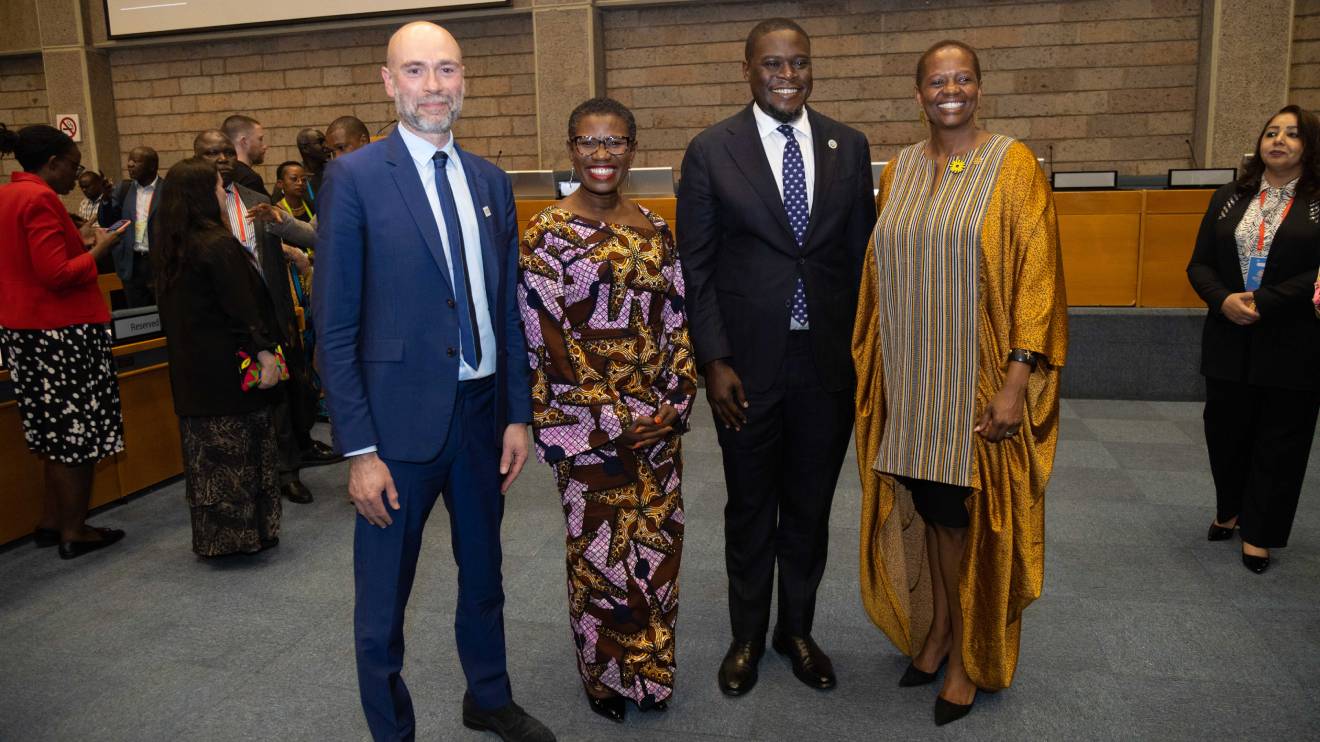Nairobi is hosting a transformative gathering as over 250 influential leaders from across Africa converge to explore how cities can adapt and thrive in the face of climate change.
The Green & Resilient UrbanShift Africa Forum, funded by the Global Environment Facility (GEF) and spearheaded by C40 Cities, will bring together mayors, city officials, policymakers, and private sector leaders from across the continent to map out actionable solutions for sustainable urban growth.
With Africa's cities expanding at an unprecedented rate, the forum arrives at a critical time. Already, 92 per cent of these urban areas are vulnerable to extreme climate risks, from devastating floods to prolonged droughts.
The forum, supported by the UN Environment Programme (UNEP), World Resources Institute (WRI), and ICLEI, aims to shift the focus toward climate resilience and sustainable investments that can future-proof Africa’s rapidly growing urban centres.
Held at the UNEP headquarters in Nairobi, the event’s opening ceremony will feature the signing of an open letter by several mayors and governors of the continent’s largest cities.
Read More
The letter urges African governments to prioritise green investments in their national budgets, strengthen municipal finances, and remove barriers to public-private partnerships that can accelerate climate action.
Among the forum’s key highlights is the release of a new Roadmap on Sustainable Finance Action and Advocacy for Global South cities.
This roadmap, crafted by C40 Cities, UrbanShift, and the Global Covenant of Mayors for Climate and Energy (GCoM), outlines the practical steps city leaders can take to secure financing for projects such as clean energy, affordable housing, and resilient public transport.
By providing clear guidance on accessing funding and creating stronger national platforms for coordination, the roadmap is poised to help mayors unlock the financial resources needed for impactful climate solutions.
Yvonne Aki-Sawyerr, the Mayor of Freetown and Co-chair of C40 Cities, underscored the urgency of investing in Africa's youth, who are already driving climate action in their communities.
"African cities are already at the vanguard of climate action and innovation. With approximately 70 per cent of Africa’s population under the age of 35, young people are leveraging technology, creativity, and entrepreneurship to drive the shift toward sustainability. It is time for the international finance community to invest in their energy and ideas," Yvonne stated.
As discussions unfold, the youth will not be sidelined. A delegation of young climate leaders will participate actively, ensuring that their voices are heard as part of the continent’s climate narrative.
This focus on intergenerational collaboration reflects the understanding that the future of Africa’s cities lies in empowering its younger generations to lead the way.
The forum also highlights the immense potential for investors looking to support climate solutions across Africa.
Nairobi’s Governor, Sakaja Johnson, pointed out that Africa's young population presents a unique opportunity for transformation
"Africa’s young population means there is ample opportunity to transform the reality for many cities and many residents," Sakaja stated.
"We will continue leveraging technology and entrepreneurship to develop clean energy solutions which must be accompanied by the development of a greener, fairer economic model for all.”
The urgency of financial backing for African cities was echoed by experts like Martin Krause, UNEP's Director of Climate Change.
"African cities are increasingly vulnerable to extreme climate events, some facing devastating floods and others extreme drought," Krause said.
"National climate action plans, co-developed with sub-national governments, can empower cities to facilitate resources and funding for more effective implementation, protection of urban residents and low-carbon, resilient development."
Mark Watts, Executive Director of C40 Cities, shared an impassioned plea for immediate action, stating, “Many African cities are already on the frontline of the climate crisis, facing record-breaking temperatures, food insecurity and significant levels of climate migration."
"African mayors are showing considerable leadership, but they need the financial power to match their ambition. Unlocking finance for cities isn’t just the right thing to do; it’s the smartest possible investment in Africa’s future," Watts said.
Meanwhile, research from the World Resources Institute (WRI) reveals a growing momentum in African cities’ pursuit of nature-based solutions (NBS) for climate resilience.
“Forthcoming WRI research identified nearly 300 NBS projects for climate resilience... Collectively, these efforts secured more than $21 billion in funding,” stated Pablo Lazo, Global Director of Urban Development at WRI.
However, he pointed out that new funding sources are still required to meet the growing demands for climate solutions.
As cities across the continent push for climate finance, the urgency for reform in investment flows is clear.
Andy Deacon, Co-Managing Director of GCoM, stressed the need for systemic change, stating, “While cities in the Global South have bold climate ambitions, transforming ideas into bankable, implementable projects remains a challenge. The new Roadmap on Sustainable Finance comes as a decisive step towards equipping mayors with the tools to access funding.”
The stakes are high for Africa’s cities. As the continent faces the dual challenges of rapid urban growth and mounting climate risks, partnerships between cities and national governments are essential.
Mohamed Bakarr, Manager of GEF’s Integration and Knowledge Division, emphasized, “Sustainable urban development in Africa relies on the vital collaboration between cities and national governments. This partnership is key to creating an enabling environment for directing finance where it can most impact climate, nature, and people in cities.”
Finally, Prof. Kevin Chika Urama, Chief Economist at the African Development Bank, outlined the economic potential of investing in resilient cities.
“Every dollar invested in resilient urban infrastructure yields multiple returns - lower costs from climate shocks, increased private sector confidence, and a more dynamic local economy," Urama remarked.
The Green & Resilient UrbanShift Africa Forum is setting the stage for an African-led transformation in urban development, with a focus on youth-driven innovation, sustainable financing, and climate resilience that promises to shape the future of cities on the continent.









 shares a light moment with the company's Group CEO Dr Patrick Tumbo (right) at a past event-1758121528.jpeg)
-1758116028.jpeg)

